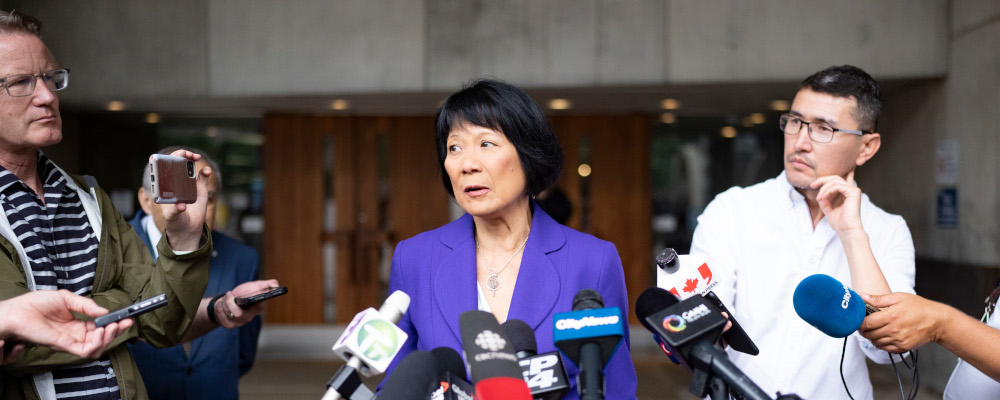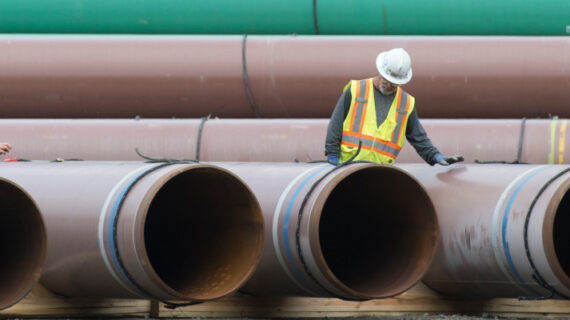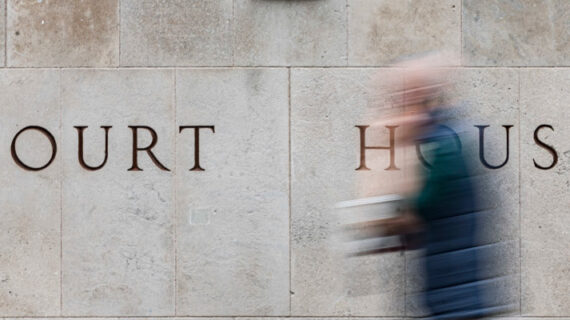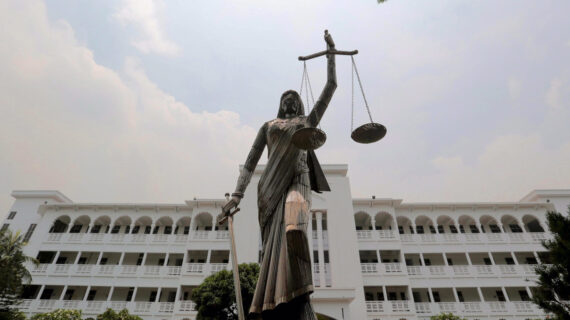It’s Toronto budget season. I’d like to sit here and tell you that there is a robust, practical, fact-filled debate about the city’s finances taking place at City Hall. But I’m not that good at lying.
The centre of the debate is a “historic” 10.5 percent property tax increase. The narrative writes itself: out-of-touch left-wing mayor jacks up taxes in the middle of an affordability crisis. It’s exactly what many conservatives expected when she was elected.
In a vacuum, there’s nothing factually incorrect about any of that. Mayor Chow is a lifelong NDP member and isn’t shy about taxes. And, indeed, Torontonians are getting squeezed right now. Both owners and renters have seen shelter costs jump over the past few years as our deep housing shortage collided with a spike in interest rates to combat inflation. This really and truly sucks. It’s understandable that people are mad.

Here’s the problem: this isn’t happening in a vacuum. Toronto is facing a $1.8 billion budget shortfall. We need to close that gap through higher revenue, lower spending, or some combination of the two. Unlike the federal and provincial governments, cities can’t just run deficits. They can’t kick the can down the road.
Moreover, there’s some context. For starters, 10.5 percent sounds huge. It’s around $32 a month for the average homeowner. Certainly not welcome news, but it’s only historically large on a percentage basis because the last two mayors kept property taxes low, allowing basic services and amenities to fall into disrepair. If Toronto had a mascot (other than a raccoon) it would be an overflowing garbage can or a closed public toilet. Is $32 a month too high? Maybe. Is it an obscene money grab? That’s a more difficult case to make.
But, let’s just say for a minute the tax increase isn’t acceptable. We choose lower spending instead of higher taxes, theoretically. Trouble is, we’ve only got so much control over spending. We can’t just trim salaries, for instance. They’re set by collective agreements that we can’t tear up. Fine. Then we’ll tackle waste. Only, the last two mayors tried that. If there was obvious fat to trim, someone would have proposed it. This leaves us with no easy options.
Of course, there are probably opportunities to deliver services at a lower cost. The trouble is, we actually need to pass a budget. And as far as I can tell the only proposal to cut spending on the table (other than a tiny reduction in the police budget) is cancelling the renaming of Yonge-Dundas Square. In other words, there’s no alternative plan other than complaining about the tax increase.
Municipal governments, as creatures of the provinces, have very limited fiscal tools. For instance, the City of Toronto wasn’t even allowed to toll the Gardiner Expressway. Their own source revenue (e.g. excluding transfers) is primarily composed of property and land transfer taxes and various user fees. Unlike, say, income taxes that come right off your paycheque, these are highly visible forms of taxes that don’t automatically grow with the economy. We actually cut property taxes when property values increase, which we certainly don’t do with income taxes. It’s like the opposite of bracket creep!
Moreover, as mentioned, cities can’t just run deficits. Provincial and federal politicians can hold the line on taxes, knowing that they can simply paper it over with debt. It’s easy to make simplistic proclamations about simply trimming waste, then failing to actually balance the budget, since there are no immediate consequences. Municipal politicians can’t do that. If there’s a hole, they need to fill it.
While I’d argue there’s a lot of room to cut federal and provincial budgets, it’s much harder with municipal governments. Don’t believe me? Let’s take the idea of hacking out $1.8 billion seriously.
Let’s focus on city agencies. This covers some of the biggest municipal expenses. The TTC’s 2023 budget was just over $2.2 billion. So we’d need to cut 80 percent of the budget to fill a $1.8 billion hole. Or, we could eliminate the police department. That saves about $1.3 billion. Throw in the library system, Exhibition Place, the zoo, and—what the heck—Yonge-Dundas Square. That should do it. Easy, right?
The unfortunate thing about these debates is that there are almost certainly ways to do things better. We can have more for less if we’re smart about it. But we have to be realistic about the magnitude of challenges and bring detailed solutions to the table. If you show up with a proposal to just trim some symbolic waste, you’re not presenting an alternative to the property tax increase.
Of course, while the provincial and federal governments have been spared these tough decisions for a long time, it might not last forever. The bond market runs the world, whether we like it or not. There’s only so much debt investors are willing to finance. Maybe we’ll grow our economy fast enough to avoid hard choices. Maybe we won’t.
Fiscal conservatives are often weary of proposing scary-sounding changes to the way services are funded and delivered. After all, people might be more willing to go along with abstract rather than concrete spending cuts. But if we’re going to actually make government more efficient, we have to have these conversations. Bluntly, the only way politicians will make hard choices (unless forced by the bond market, like they were in the 1990s) is if they get a mandate from the public. If they’re not willing to sell it, they’re not going to implement it. Our task is to give them things they can use, not just platitudes.
Sorry, guys. There’s no one weird trick to balancing the budget. We need to sweat the details. Let’s get at it.




